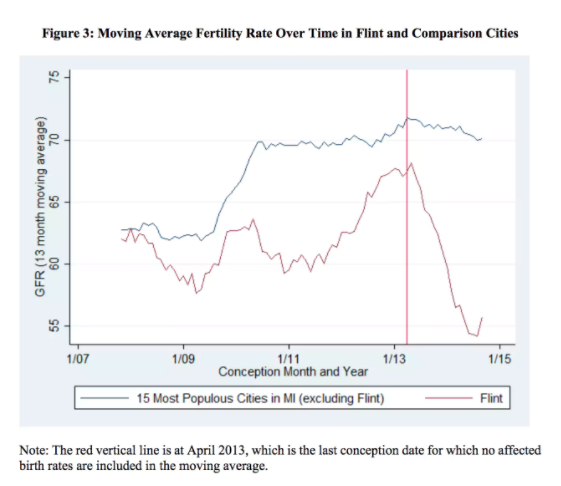Flint’s water had a “horrifyingly large” impact on fetal deaths, study finds
The lead contamination crisis in Flint, Michigan, appears to have led to a 58% increase in fetal deaths in the city between November 2013 and March 2015, according to a new working paper reported in The Washington Post.
Health economists Daniel S. Grossman from West Virginia University and David J.G. Slusky of the University of Kansas estimate that between 198 and 276 more children would have been born during that time period if the city hadn’t switched to a cheaper water source that caused lead to leach from pipes into drinking water. Overall birth rates in women between 15 and 49 declined about 12% during that period, they say. Lead contamination can also have serious effects in children and adults, including causing cognitive problems and damage to organs like the kidneys and liver.
The researchers called the effect on the fertility rate “horrifyingly large” and, essentially, a warning to the rest of the country.

“This study is of great importance as the current legislative environment includes calls for a substantial decrease in funding for the EPA which is charged with ensuring localities maintain minimum water standards,” they write in the study. “Our results suggest that a more lax regulatory environment in the context of drinking water may have substantial unforeseen effects on maternal and infant health, including large reductions in the number of births.”
Fast Company , Read Full Story
(28)


